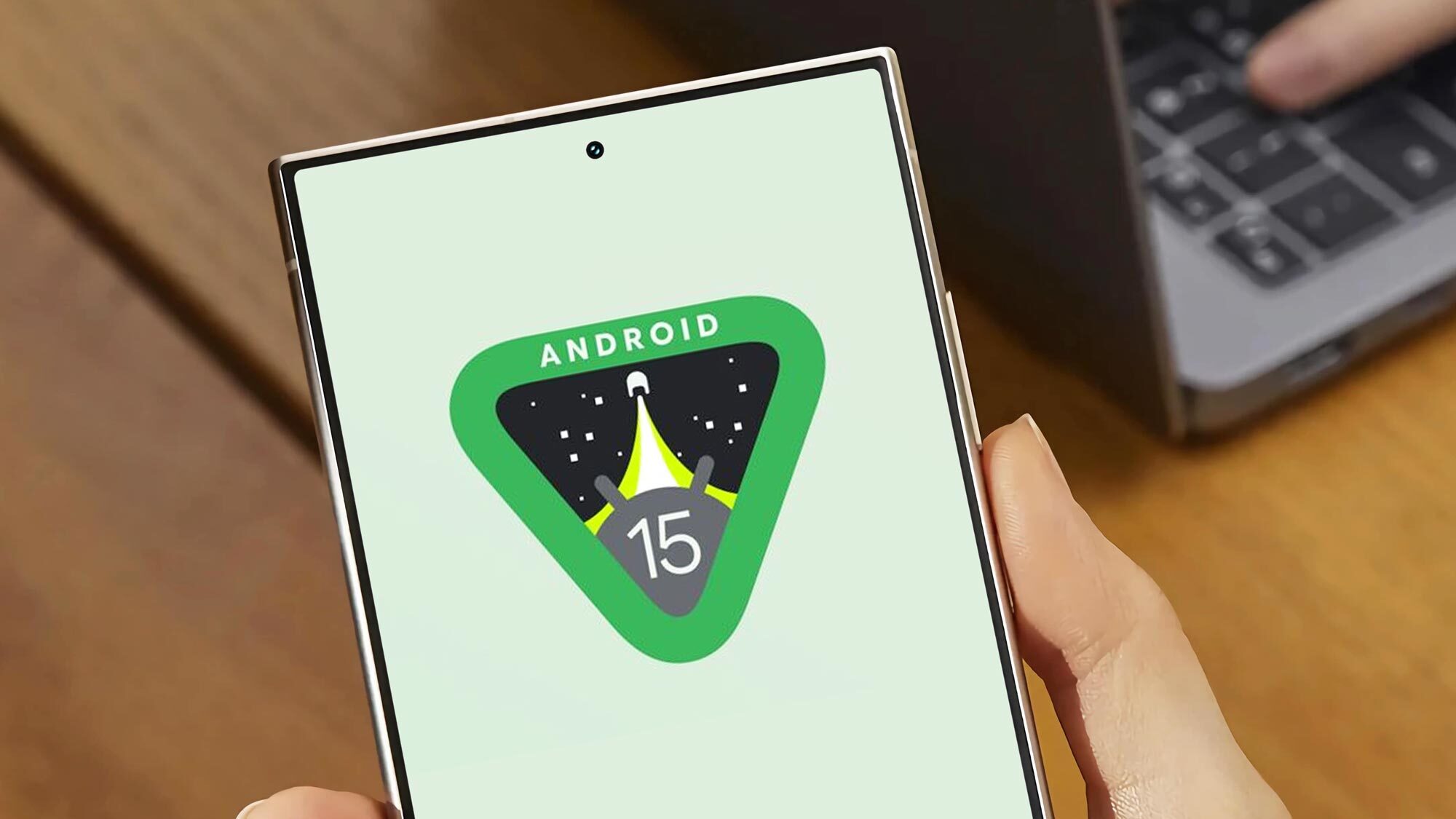5 tips for handling sleep deprivation, from a sleep coach and new parent
These simple changes eased my sleep deprivation symptoms
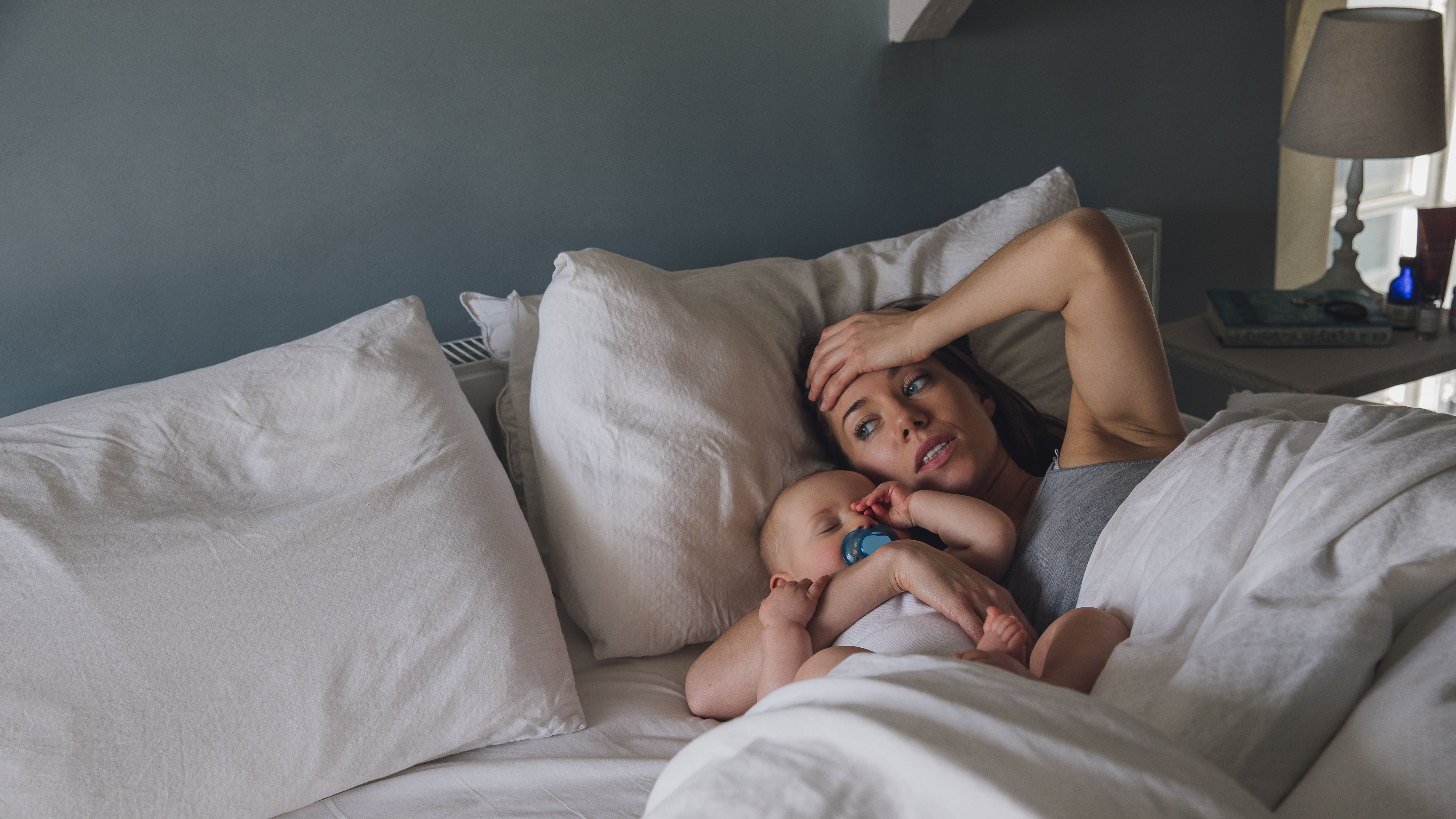
I had my baby last summer, and when other parents would gleefully warn me about the sleepless nights ahead, I had no idea just how hard sleep deprivation would hit me. And hit it did – like a sledgehammer.
The desperation of needing to sleep yet being unable to because a little human needed me 24/7 was a huge strain. I had all the classic symptoms too: brain fog, headaches, dizziness, irritability and bone-deep tiredness.
Sleep deprivation is when you don’t get enough sleep. This can be a short-term situation or it can go on for longer. The CDC explains that symptoms vary, but can include brain fog, headaches, extreme fatigue and irritability.
Chronic lack of sleep does weird things to your brain, and it can be hard to explain to someone who hasn’t experienced it just how scary it can feel to be that tired.
Still, somewhere within the newborn haze my Sleep Science Coach training kicked in and I started trying out different techniques to ease my sleep deprivation.
Five of them I still use now when my son is going through a period of not sleeping well due to teething, sickness, developmental leaps or separation anxiety (he’s just started nursery).
Here’s how I cope with sleep deprivation since having a baby – I hope some of these work for you too…
5 ways I handle sleep deprivation as a new parent
1. I’ve mastered the art of power napping
Sleep when baby sleeps’ is well-meaning advice but it’s also infuriating. My breastfed newborn had reflux so bad he would cry in pain whenever I set him down on his back (1). He also wouldn’t settle with anyone else for long.
Sign up to get the BEST of Tom's Guide direct to your inbox.
Get instant access to breaking news, the hottest reviews, great deals and helpful tips.
‘The only way for me to get a bit of sleep here and there in the day was by power napping for 20-30 minutes. I’d nurse baby then hand him over to my husband so I could sleep.
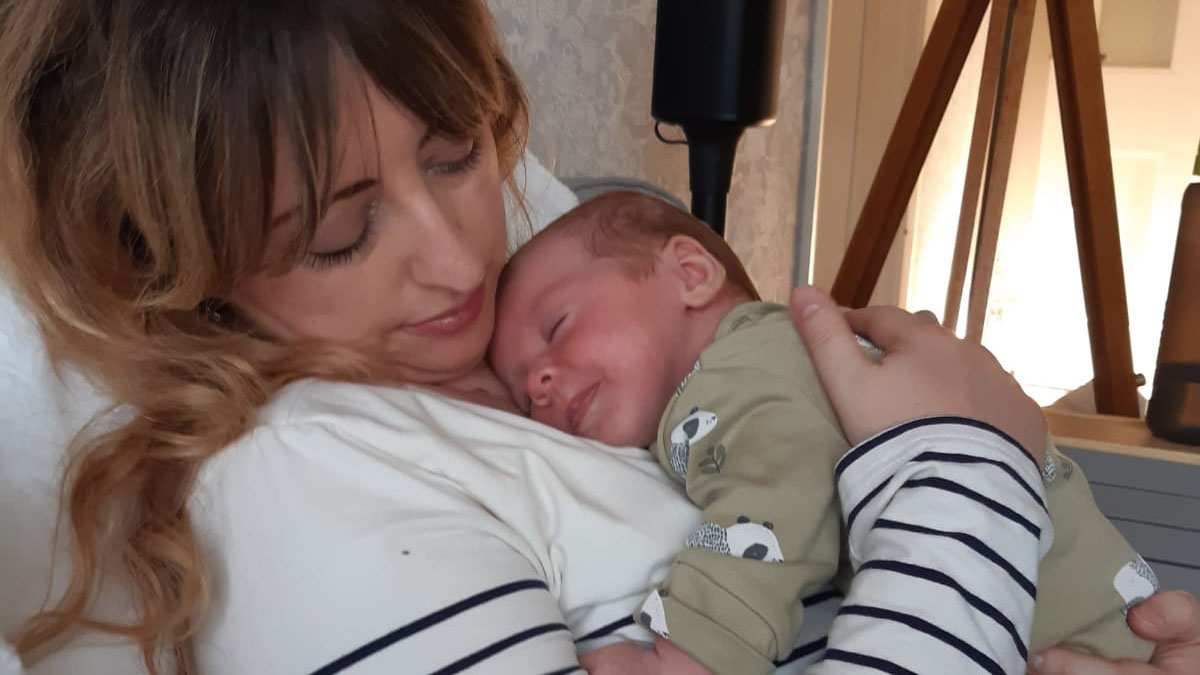
I aimed for a few power naps a day while my husband was on paternity leave and they became my lifeline until bedtime. The real kicker? Sometimes I was too overtired to sleep. Whenever that happened I’d use the Military Sleep Method to fall asleep faster.
2. Shift work makes the dream work
When we first brought our baby home, my husband and I felt there was ‘safety in numbers’ when taking care of a newborn. But after both of us had been up for nearly 20 hours a day for several days in a row, sleep deprivation was fast taking root and we realised our big mistake.
So we decided to divide and conquer, taking baby for four-hour shifts at night while the other person slept in the spare room.
The shift approach definitely helped me have better quality sleep, even if I had less of it
My husband could sleep undisturbed when I was on shift, but my sleep was often interrupted by a bottle-refusing newborn who sometimes couldn’t last longer than 45 minutes between nursing sessions, let alone four hours. (And as any breastfeeding person knows, night nursing is super-important for establishing your milk supply so I couldn’t duck out of it.)
Even so, when I could return to sleep I did so more deeply as there was no baby in the room to worry about. So the shift approach definitely helped me have better quality sleep, even if I had less of it. We still do this on nights when our baby fights sleep or keeps waking up.
3. I take morning walks, even when exhausted
Dragging myself out of a warm bed after only a couple of hours of sleep is painful. But from my work as a Sleep Editor I know that getting outside early each morning helps strengthen your circadian rhythm (body clock) as light is an important cue for your sleep cycle. It’s the same for baby.
Also, walking boosts serotonin levels and exercise gives you more energy. So if sleep deprivation is affecting your mood and making you feel wiped out, this gentle form of exercise should give you a natural lift.
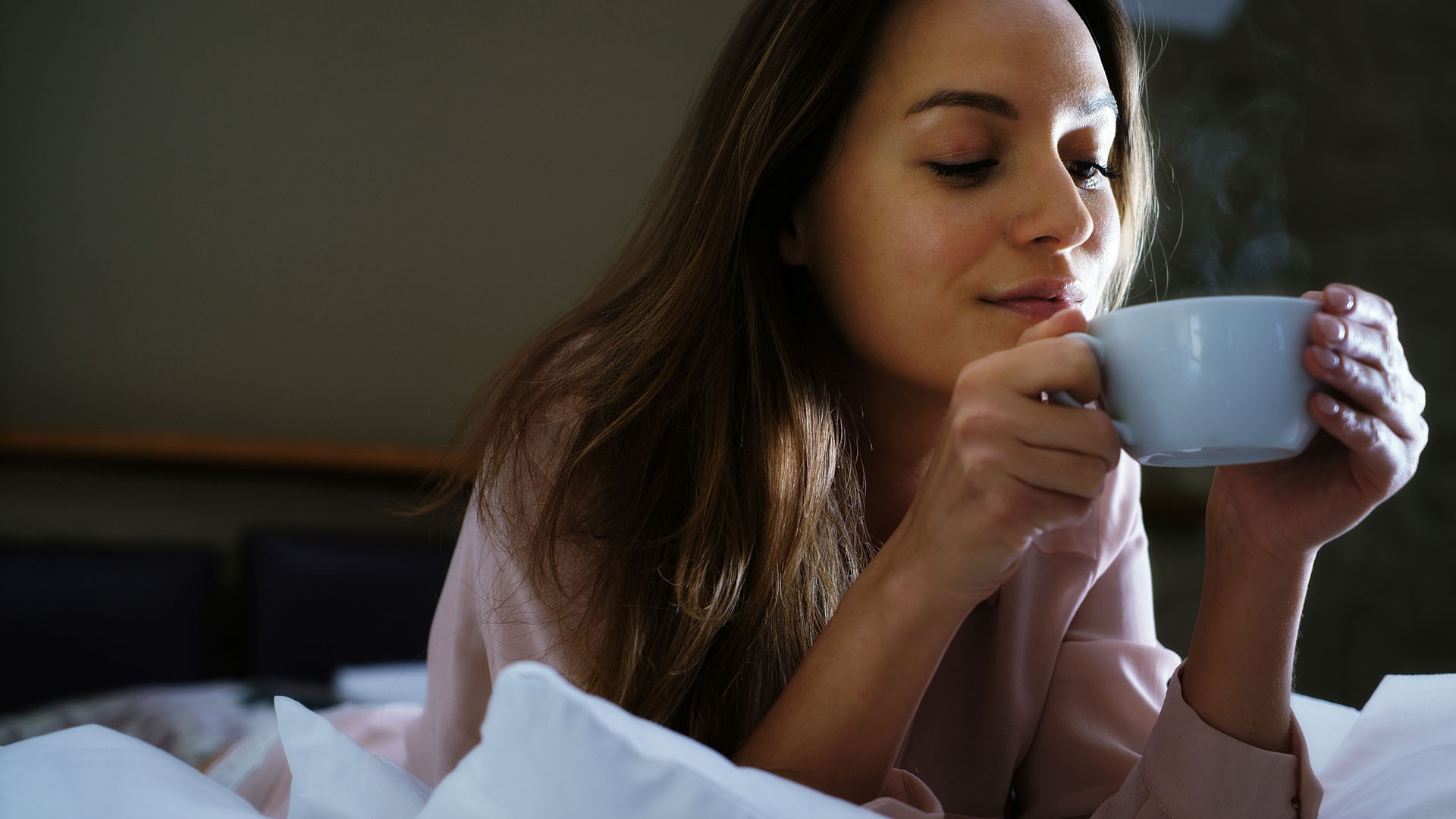
4. I consume caffeine but not after midday
I’ve always been sensitive to the effects of caffeine and generally can’t handle anything ‘harder’ than a cup of tea. Well, I drank many cups of caffeinated tea during those early weeks with a newborn, but I also stopped drinking it by 12 noon.
Why? Because caffeine has a half-life of up to 9.5 hours on average and during that time it can delay the onset of sleep. As I was aiming to be in bed around 9ish most nights, I counted eight hours back from there and used that as my cut-off point for caffeine. I’ve followed this rule ever since.
5. I keep the same bedtime as baby
The urge to stay up and relax after baby has gone to bed is pretty strong, but it’s a bad idea if you’re dealing with a baby that wakes up multiple times at night.
When my baby was a newborn I went to bed at the exact same time as him – that meant I had to do my own personal bedtime routine a little earlier than baby’s.
Best to bank sleep when I could, rather than staying up doom-scrolling or watching TV. I still do this whenever my baby is ill, teething, or going through a sleep regression. When he’s sleeping well though, nothing beats a good Netflix binge.
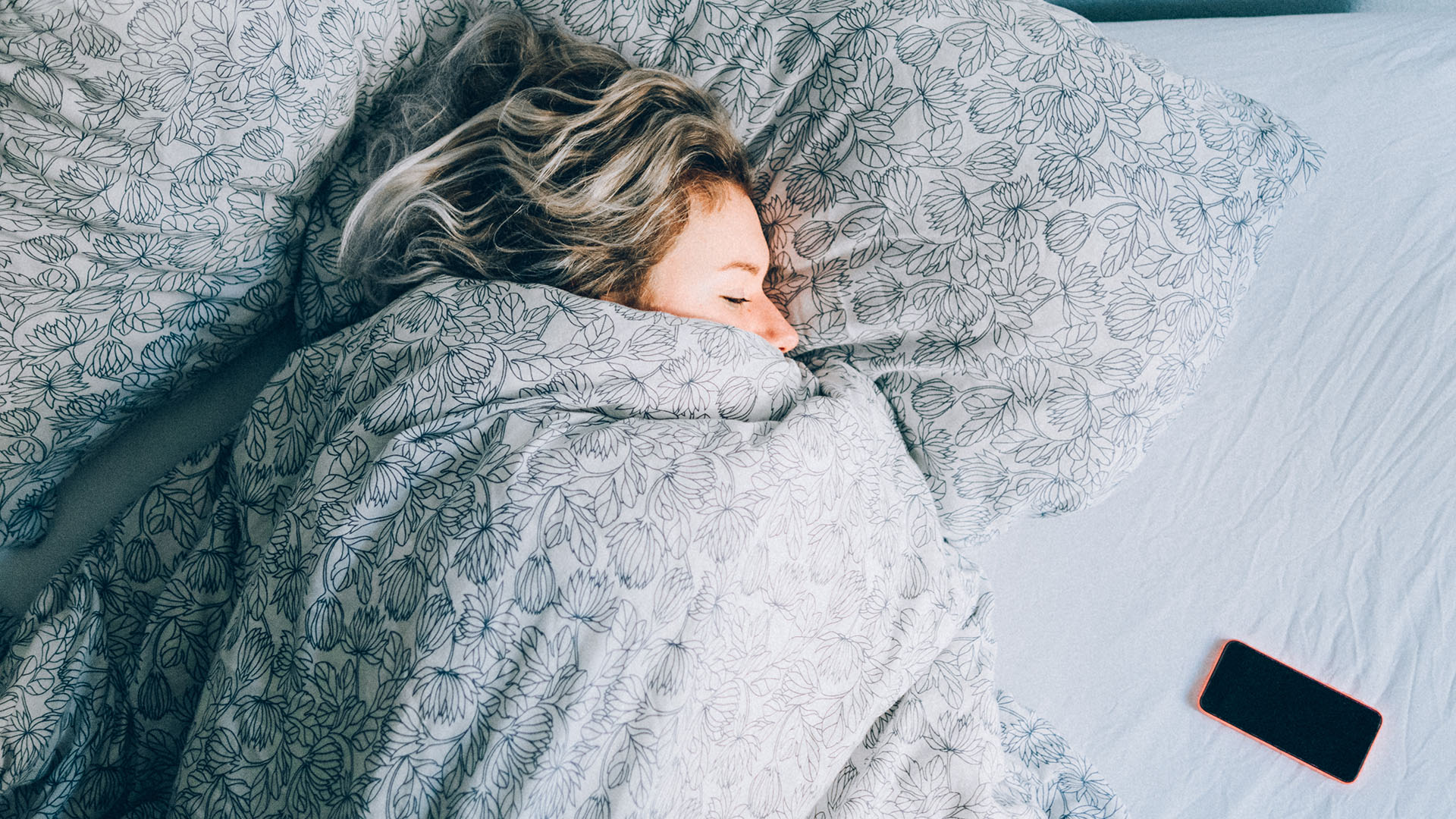
Life after sleep deprivation with a newborn
Most of us can survive short-term periods of sleep deprivation, so try not to panic if you’re in the throes of it and can’t envisage a way out. Over time babies do learn to sleep better and for longer, and you will learn to cope with less sleep.
That said, if you’re struggling with sleep or have noticed any changes in your mood, have a chat with your doctor to rule out other causes.
I’m 13 months into this now and I’ve learned a lot about the symptoms and effects of sleep deprivation and how to cope. My top tips? Sleep when you can (do shift work with your partner or trusted family member), drink lots of water and get out for an early morning walk with baby.
Also, create a relaxing bedtime routine for your family and turn your bedroom into a sleep haven. That means keeping it cool, dark and quiet at nap time or bedtime, and investing in the best mattress for your body. Get that part right and you’ll enjoy a better quality of sleep, even if you can’t sleep for as long as you’d like.
Sleep deprivation with older babies
Sleep deprivation with a newborn is acceptable to society – we don’t expect tiny babies to know how to sleep. For older babies, there are expectations that they should be sleeping through the night as soon as they turn one (if not sooner).
But that isn’t a biological norm and some babies just take longer to get to grips with sleeping. All I can do is keep showing him the way by practising good sleep hygiene with him and trust that more restful nights are on the horizon.

Claire is a qualified journalist and Certified Sleep Science Coach with over 16 years’ product review experience, and who is connected to a wealth of globally renowned sleep experts including mattress designers and buyers, neuroscientists, and doctors of sleep medicine. Claire is responsible for all mattress and sleep content published on Tom’s Guide and is our expert on Saatva, DreamCloud, and Nectar mattresses. Claire is also certified to advise people on how to choose a mattress that suits their needs and budget, as well as helping them to create a nighttime routine and bedroom environment that helps them sleep better. As our Senior Sleep and Mattress Editor, Claire oversees our rigorous testing procedures for our mattress reviews, while leading our team of specialist reviewers and writers who report on all the latest sleep products.
